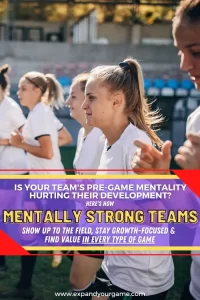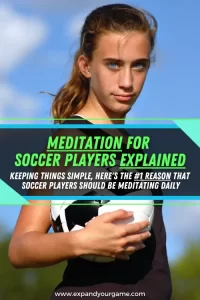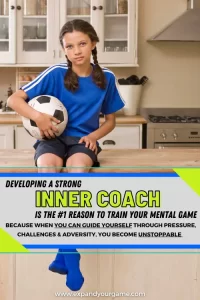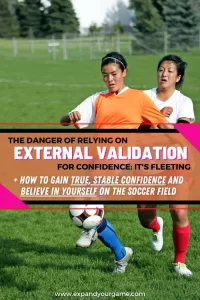The latest non-soccer book that I read was Burnout: The Secret to Unlocking the Stress Cycle by sisters Emily & Amelia Nagoski – and let me tell you, it’s a game changer. It is hands down one of the best books I have ever read on the topic of burnout, mental health and dealing with pressure and self-worth tied to results, all topics which are extremely relatable for female soccer players. And the best part is that is written for women specifically: the authors just UNDERSTAND what it’s like to struggle with female specific issues in 2022.
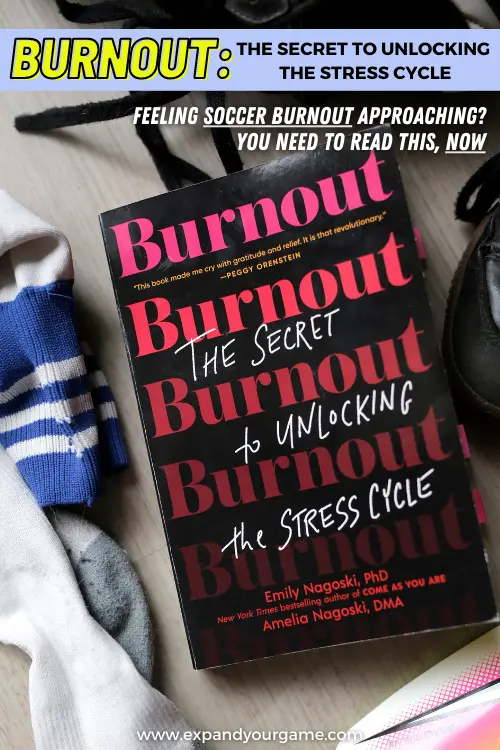
This Post Contains:
Here are my key takeaways from Burnout: The Secret to Unlocking the Stress Cycle as they relate to being a female soccer player in the world today:
How soccer burnout happens

- Your ‘Monitor’ is “the brain mechanism that decides whether to keep keep trying… or to give up.”
- “The Monitor knows (1) what your goal is; (2) how much effort you’re investing in that goal; and (3) how much progress you’re making. It keeps a running tally of your effort-to-progress ration, and it has a strong opinion about what that ratio should be.”
- It can get frustrated when it KNOWS the goal is attainable and there’s a lot of effort , but not a lot of progress
Ways to get ahead of burnout

Challenge yourself regularly if you want to see consistent progress
Difficulties are opportunities “when something feels uncomfortable, you’re probably doing something that creates more and better progress than if it were easy.” Positive reappraisal (aka reframing the situation) “reduces frustration by keeping you motivated and moving forward.” Reducing frustration reduces chance of soccer burnout.
"There is a distinct downside to effort that is too effortless: When a task feels easy, we feel more confident about our ability to perform that task even though we are actually more likely to fail."
Emily & Amelia Nagoski, Burnout: The Secret to Unlocking the Stress Cycle
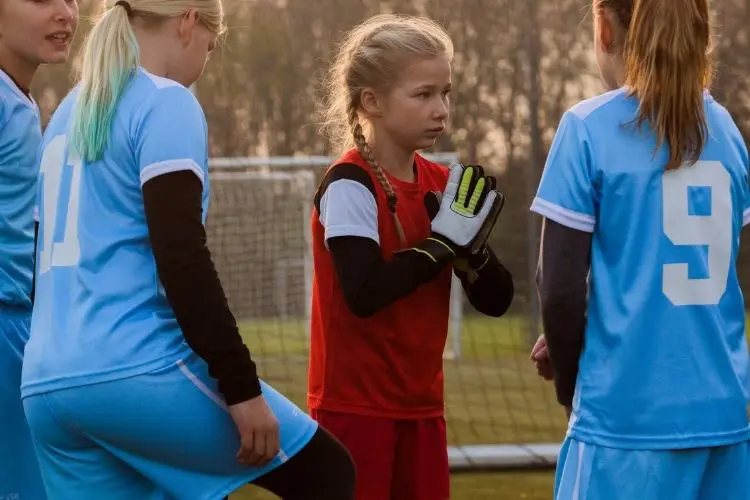
Incremental goals is how you push through to harder, bigger goals
"If you're trying to do something where you will inevitably fail and be rejected repeatedly before you achieve your goal" - like, if you're trying to get to the top of your sport for example - "then you will need a nonstandard relationship with winning, focusing on incremental goals."
Emily & Amelia Nagoski, Burnout: The Secret to Unlocking the Stress Cycle
Grow your confidence by
Redefining winning on game day
Subscribe to our email list to
Get our free 'controllable objectives' worksheet
We respect your privacy. Unsubscribe anytime.
Finding meaning and knowing your 'why'
{Related read: Why I coach soccer; identifying my PURPOSE on the soccer field}
"Meaning, in short, is the nourishing experience of feeling like we're connected to something larger than ourselves. It helps us thrive when things are going well, and it helps us cope when things go wrong in our lives."
Emily & Amelia Nagoski, Burnout: The Secret to Unlocking the Stress Cycle
Self-criticism & toxic perfectionism
Perfectionism & how it contributes to soccer burnout
There’s a lot that can be written about perfectionism, but what I enjoyed most in Burnout, is the authors’s approach to separating the helpful bits from the unhelpful ones:
"The fundamental problem of perfectionism is that it does terrible things to your monitor. You have the goal of "perfection" which is an impossible goal, as you start the project or the meal or the outfit of the day, and then as soon as something falls short of "perfect", the whole thing is ruined. And sometimes if your goal is "perfect," some part of you already knows that it's an impossible goal, so you think about your project or meal or outfit, knowing you're never going to achieve your goal, and so you feel hopeless before you've even begun."
Emily & Amelia Nagoski, Burnout: The Secret to Unlocking the Stress Cycle

The remedy is self-compassion

Soccer burnout isn't always bad, sometimes moving on is what you need to do
"We get exhausted and we wonder if we can accomplish any of the things we hope for, without destroying ourselves in the process. We ask ourselves if it's time to quit."
Emily & Amelia Nagoski, Burnout: The Secret to Unlocking the Stress Cycle

Your teammates and friends, and maybe even your family, will probably not understand and question your decision, but you don’t owe them anything. It may feel like you do, but you don’t. If changing course and pivoting away from soccer is what you need to do to protect your mental health, do it. Love yourself enough to take charge and stand up for yourself.
Joy and self-worth: the ultimate way to keep soccer burnout at bay
{Download our FREE self-reflection worksheet bundle! Own your growth NOW}

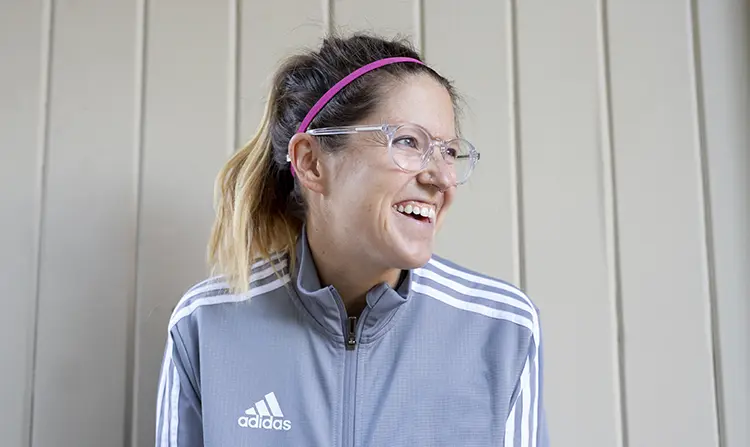
Hi everyone! I’m Jenn and I create content to help female soccer players and coaches maximize individual and team potential by developing healthy mindset skills. Join other subscribers and sign up for the newsletter for all my best tips and advice!
We respect your privacy. Unsubscribe anytime.


